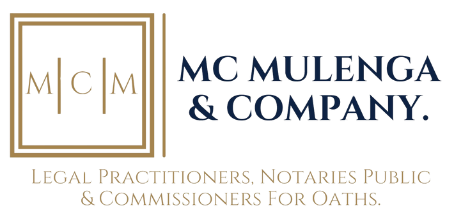In an increasingly competitive legal environment, the pressure on lawyers to distinguish themselves can sometimes obscure the core values of integrity and professionalism. However, the role of integrity and professionalism in ensuring a successful legal career cannot be overstated. Lawyers bear the substantial responsibility of upholding the law, advocating for justice, and protecting the rights and interests of their clients. As such, it is imperative for legal practitioners to cultivate and preserve the trust of both clients and the public by consistently acting with fairness, honesty, and responsibility in all professional engagements. In essence, legal practitioners are required to uphold the highest moral standards, serving as exemplars of integrity and opposing any form of deceit or hypocrisy.
In Zambia, the integrity and professionalism of legal practitioners are regulated by the Legal Practitioners Act (Chapter 30 of the Laws of Zambia) and the Legal Practitioners Practice Rules of 2002 (S.I. No. 51). This article critically examines the principles of professional conduct outlined in these legal frameworks, particularly with respect to the expectations of integrity and professionalism for lawyers.
Principle of Integrity and Professionalism
Rule 32(1)(a)(iii) of the Legal Practitioners Practice Rules of 2002 mandates that “a practitioner shall not engage in conduct likely to diminish public confidence in the legal profession or the administration of justice, or otherwise bring the legal profession into disrepute.” This provision underscores the duty of every legal practitioner to remain a fit and proper person, ensuring that their name remains on the roll of practitioners. Legal practitioners, therefore, owe a fundamental duty to the profession to uphold integrity, which requires them to act with honesty and transparency toward both clients and the court. Acting with integrity towards a client includes, for example, refraining from accepting instructions in matters where the practitioner lacks the necessary skill or competence to effectively safeguard the client’s interests.
Consequences of Breaching the Code of Conduct
As previously emphasized, integrity is the cornerstone of a successful legal career. A practitioner who lacks integrity is unlikely to sustain a long-term career at the bar. This is especially critical because judges are appointed from among the ranks of legal practitioners. If integrity is not a fundamental requirement for legal practitioners, there is a significant risk that individuals who lack moral fortitude may ascend to the bench, thus undermining the credibility and trustworthiness of the judicial system.
In this context, the interests of both the legal profession and clients demand that a practitioner who is proven to lack integrity be removed from the roll of practitioners. The seriousness of such professional misconduct was highlighted in the case of Law Association of Zambia v. Gideon Katebe Mwewa 2007/HP/202 (Unreported), in which the Law Association of Zambia sought the removal of a practitioner from the roll for the misappropriation of client funds. The court firmly stated that “no mitigation could dilute such a serious offence of misconduct by a legal practitioner,” adding, “It is our firm belief that courts are a key stakeholder in the legal profession, and any serious misconduct on the part of a legal practitioner must be condemned by the courts as it tarnishes the image of the legal profession to which we belong. We would be failing in our duties if we were seen to condone any misconduct by a legal practitioner.”
In this regard, Rule 32(1)(a)(iii) of the Legal Practitioners Practice Rules of 2002 further reinforces the importance of integrity as a core duty that legal practitioners owe to both the profession and their clients. It is also important to note that integrity remains a key consideration for individuals seeking reinstatement to the roll after having been struck off, as well as for those applying to enroll in the Legal Practitioners Qualifying Examination Course. The profession’s commitment to integrity extends beyond practitioners who are already admitted to the bar, reflecting the importance of high moral standards throughout the legal career.
Conclusion
In conclusion, integrity and professionalism must not be viewed merely as aspirational goals but as foundational principles that govern the legal profession. Adherence to these ethical standards is essential not only for maintaining public trust but also for ensuring the fair administration of justice. A lawyer’s commitment to integrity extends far beyond individual cases; it impacts the broader social, economic, and legal fabric of the country. Moreover, the sustained professionalism of legal practitioners enhances the credibility of the legal system, fostering both local and international confidence in the legal infrastructure. By upholding ethical principles, legal practitioners can play a pivotal role in curbing corruption, addressing legal injustices, and ensuring the equitable application of the law.
Written By: Elizabeth Mayuya






